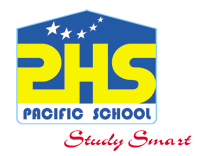PHS School Thinking...
PHS field trips are always done with a lot of effort by teachers. Getting students out is much more difficult and challenging work than teaching them in the classroom.
Lessons before the trip:
Field trip schedule is provided to students and parents a few days or weeks in advance (depending on the length of the trip). A series of activities begins in the excitement of students and teachers. Depending on the class group, the teachers guide children to do appropriate work: planning for themselves and the group/class, assigning tasks to friends in the group, receiving projects, making a list of supplies (check list), packing luggage..etc….
The teachers are even more prepared: from student management to projects, given questions for them to learn, tools to gifts,…
A lot of skills are done right in this preparation. Knowing that students often forget before and after, teachers help them to continuously self-check the assigned work.
Practice on trips:
Each trip has its own goals and agenda. Students are trained in discipline, time management skills, self-examination, evaluation, teamwork, etc. to keep themselves and the team up to speed.
In the classroom, each PHS teacher can manage up to 16 students, but when going on a field trip, each teacher only manages from 5 to 7 children and is always along with one of the administrators. The tour guides do not have pedagogical skills, so they are only responsible for conveying information and answering questions from students and teachers. Students are allowed to work in groups with teachers who are not their homeroom teachers. The students know how to share work, the leader of the student group shares the management with the teacher, implements the administrator’s instructions, moves and implements the group plan…
In practice, students are trained to adapt and protect themselves. Self-management skills and individual or group work organization are enhanced as they discover new things and have fun with teachers and friends at the same time, but still know when to stop at the right time to focus on listening or working… Budget management is also interesting when the school only allows each student to bring a modest amount of money to both spend and buy gifts for the family.
End the trip but not the end of the lesson:
It is wrong to think that students learn skills in a day or a few days, just as knowledge learned once is memorized. This is not true even for adults. A trip with a lot of new and fun information and emotions will stay with the children for the longest time. It’s a good thing as they will love to learn new things, like to go further, love teachers, and friends more. Next is confidence and “experience”, they will be less afraid of difficulties, accept less favorable living conditions, and be more resilient…. Students will realize that modern machines are not so necessary when they can learn a lot from people and the environment.
However, lessons and projects take longer to complete. They need to summarize the information that has been recorded, rearrange the images, save the collected samples … to make a detailed presentation, which is the second learning. The third time is when they present the project or group research in front of the class, in front of the school.
Emotions and experiences will continue to be shared, photos of the trip will be stored and displayed in the classroom or in common spaces for children to always see and remember.
Materials for lectures:
Photographs, samples, and travel records are valuable materials for the teaching process of most subjects. Without this source of material, lessons are just theories. It is easy to see that PHS teachers are no less attentive to taking notes and asking questions than students. It is the teachers who suggest the school where to go, what to do to support their professional work. We always tell our students: “Teachers don’t know everything, teachers have to learn.” With our enthusiasm for learning, we are setting an example for the children to follow.
Regular field trips with an increasingly diverse program are contributing to building a dynamic, anytime, and anywhere learning style for PHS members.
MS. THANH HUONG

Pacific Primary, Middle, and High School is a Vietnamese-English bilingual institution structured according to international standards. We are dedicated to fostering core competencies, enabling students to integrate seamlessly into the global education landscape while achieving their full personal potential.